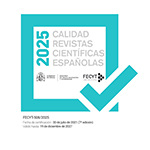Built Ethnological Heritage: from democratization to democracy
Resumen
Built ethnological heritage is acquiring an increasingly participatory and open meaning, in agreement with new conceptualizations of cultural heritage and an understanding of tradition as a dynamic process. However, there is a contradiction between the regulatory documents associated with cultural heritage that advocate these principles, and the types of cultural expression or assets that they recognize and aim to safeguard. This article aims to draw attention to these inconsistencies and proposes the replacement of the traditional comprehensive paradigm of vernacular architecture – excessively formalistic and focussed on constructions – with one that is more inclusive and culturally centred, in which expressions of modern industrial culture are recognized and where the subject community has agency and is effectively engaged. Furthermore it is t is argued that an understanding of this new architectural heritage be integrated without delay into the democratic structures of our societies. To this end, a process of change is required similar to that previously experienced by other cultural sectors, for instance, within the art world
Descargas
Descarga artículo
Licencia
La revista Arte, Individuo y Sociedad, para fomentar el intercambio global del conocimiento, facilita el acceso sin restricciones a sus contenidos desde el momento de su publicación en la presente edición electrónica, y por eso es una revista de acceso abierto. Los originales publicados en esta revista son propiedad de la Universidad Complutense de Madrid y es obligatorio citar su procedencia en cualquier reproducción total o parcial. Todos los contenidos se distribuyen bajo una licencia de uso y distribución Creative Commons Reconocimiento 4.0 (CC BY 4.0). Esta circunstancia ha de hacerse constar expresamente de esta forma cuando sea necesario. Puede consultar la versión informativa y el texto legal de la licencia.










